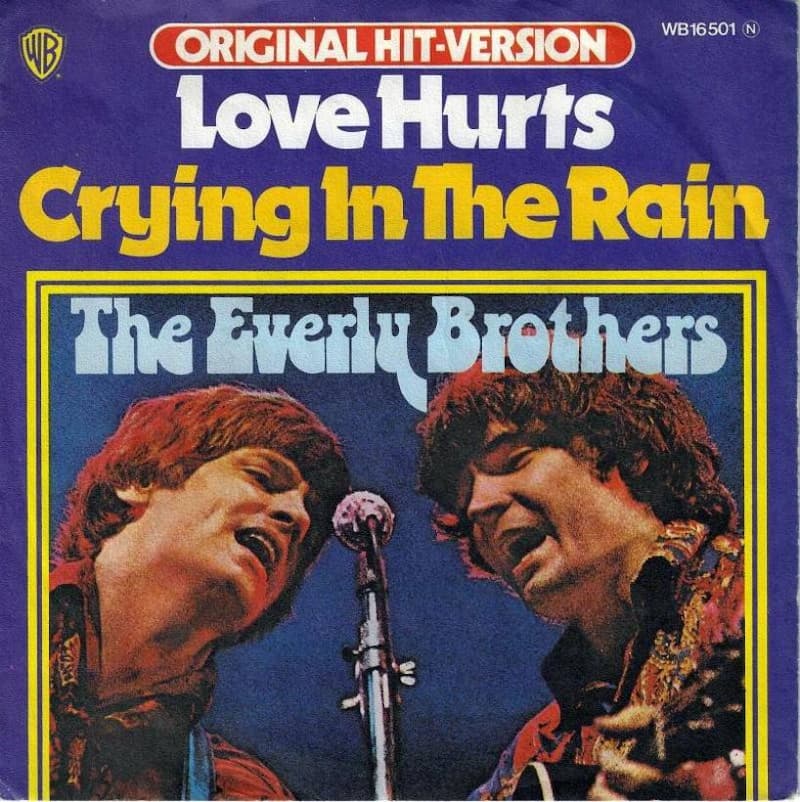
“Love Hurts” stands out as a haunting anti-love anthem penned by the talented husband-and-wife songwriting duo, Felice and Boudleaux Bryant. Although it graces the discography of the legendary duo, The Everly Brothers, it was uniquely credited only to Boudleaux Bryant. This song, arguably one of the duo’s finest, ironically never saw the light of day as a single upon its inception, getting buried within the tracks of their 1960 album, A Date with the Everly Brothers.
The story behind its delayed recognition is rooted deep in industry battles. Don and Phil Everly initially intended to release “Love Hurts” as a single but found themselves entangled in a bitter legal dispute with Acuff-Rose, a dominant music publishing company headed by Fred Rose. Rose insisted that all singles must be released under his company’s publishing domain after the Everlys shifted to Warner Bros. in 1960. Their fallout meant losing access not only to Rose’s catalog but also to other Acuff-Rose songwriters, including the Bryants themselves.
“Wesley covered us with Roy Orbison, which was outlandishly selfish,”
Don Everly vented in Roger White’s 1998 book Walk Right Back: The Everly Brothers On Warner Bros..
“The arrangement was ours, and it was written for us. We couldn’t release it as a single because we didn’t know if Acuff-Rose would license it or not because we were in a lawsuit with them. It got that bitter.”
Interestingly, the dark and sensual undertones of “Love Hurts” could have also scared off producers from pushing it as a single. Unlike previous Everly Brothers’ hits such as the dreamy “All I Have To Do Is Dream” or the upbeat “Wake Up, Little Susie,” this track plunges into the painful and complex psychology of love. It refuses to paint love as mere bliss, instead exposing its wounds, scars, and torment.
Despite its rocky start, “Love Hurts” found some minor attention the year after its album debut by becoming the B-side to Roy Orbison’s hit single “Running Scared.” Yet, the song truly exploded 14 years later when the Scottish rock band Nazareth reimagined it as a soul-piercing rock ballad. At that time, as music historian Bob Leszczak highlights, for most listeners it felt like a fresh discovery and a powerful new interpretation.
To this day, “Love Hurts” resonates as a timeless portrayal of love’s sharpest pangs and emotional scars, a legacy inscribed in every aching lyric:
Love hurts, love scars, love wounds and mars
Any heart not tough nor strong enough
To take a lot of pain, take a lot of pain
Love is like a cloud, holds a lot of rain
Love hurts
Love hurts
This song remains an emotive mirror reflecting love’s darker faces—pain, betrayal, and the bittersweet truth that sometimes love hurts more than it heals.